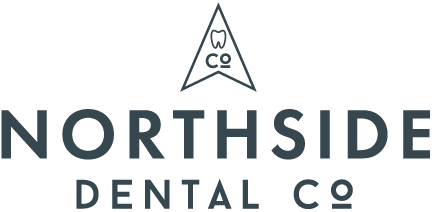Getting children to sit still for more than 30-minute dental hygiene appointments can be a challenging task. But for adults, a dental appointment for cleaning usually takes about one hour. However, if a more extensive deep cleaning is needed, those hygiene appointments can take two to three hours (usually broken up into two appointments).
With all the different types of dental cleanings, it can be unclear how long a hygiene visit to the dentist or other procedures will take.
If you’re wondering, “How long is a dentist visit?” you’re in the right place.
In this article, we’re providing expert information on the most common hygiene and restorative dental procedures and how long they take on average. You’ll receive answers to questions like:
- How long are routine hygienist appointments?
- What happens at a dentist appointment for fillings, crowns, or gum disease?
- How do I make an appointment with a dentist for an emergency?
Keep reading to learn more about dental hygiene appointment breakdown times.
How Long Do Dentist Appointments Take?
To help you understand what happens at a dentist appointment, here are the top five dental procedures and the average time you can expect them to take.
1. Routine Cleaning
What’s involved:
A routine hygiene visit to the dentist is the most common dental procedure. The procedure will include some combination of the following:
- X-rays
- Scaling (scraping plaque and tartar off the surface of teeth)
- Gum health check
- Cavity check
- Flossing
- Fluoride treatment
- Polishing
- Oral cancer check
A dental hygienist will perform most of these actions, and a trained dentist will perform the cavity and oral cancer check.
Dentists recommend scheduling a routine checkup and cleaning every 6 months (or more frequently if you’re at higher risk for gum disease).
Procedure timeframe:
Routine cleaning time is office-specific, but most dentists perform the cleaning over 45-60 minutes.
For children, some offices will offer shorter, 30-minute dental hygiene appointments.
2. Cavity Fillings
What’s involved:
If a routine cleaning is the most common reason people go to the dentist, cavity fillings are a close second.
Cavities form when bacteria on our teeth produce acids that break down the tooth enamel (the hard, outer layer of the tooth). If you don’t regularly remove these bacteria through good oral hygiene and routine dental visits, the acids will create holes (cavities) in a tooth.
Are you wondering what to expect at your first dentist appointment for cavities?
To treat cavities, dentists follow this general procedure:
- Identify the tooth/teeth that have cavities
- Numb the affected tooth, gums, and surrounding area
- Drill out the infected area (to keep the bacteria from spreading)
- Fill in the cavities
Recognizing cavities early and filling them is essential to long-term oral health. So if you think you have cavities or your dentist identifies some, it’s best to get them filled quickly.
Procedure timeframe:
The answer to “how long do dentist appointments take for cavity fillings?” depends on the severity and number of cavities you need your dentist to fill.
One or two small cavities will take roughly 30 minutes. However, when you have multiple large cavities, it could take one and a half to two hours.
Additionally, dentists will usually only numb one side of your mouth per visit. If you have cavities on both sides of your mouth, it may require multiple visits to get all your cavities filled.
3. Scaling and Root Planing or Deep Cleaning
What’s involved:
Scaling and root planing (SRP) is another fairly standard dental procedure.
You may not have realized it, but every time you go to the dentist for a routine check-up, the dentist or hygienist will scale your teeth—using a metal tool to scrape plaque and tartar off the surface of your teeth.
SRP is a more serious procedure that treats advanced gum disease (periodontitis). It takes scaling one step further to help remove bacteria inside the gum tissue to restore gum health.
So, what happens at a dentist appointment for scaling and root planing?
Instead of simply scraping (scaling) the outer surface of your teeth, the hygenist will scrape down into the gum tissue of the affected tooth. The goal is to remove the bacteria from the base of the tooth and create a clean space for the gum tissue to reattach to the tooth.
An SRP isn’t particularly painful, because the hygienist will numb your mouth prior to the procedure. However, most patients will experience mild discomfort in their gums for a few days following.
Procedure timeframe:
Full-mouth scaling is easily done within a routine 60-minute visit, but how long is a dentist visit for SRP?
Like cavity fillings, the time it takes for an SRP procedure depends on:
- The severity of your gum disease
- The amount of affected gum tissue
Less severe periodontitis with a smaller affected area will take less time to clean than a more severe condition with a greater area of affected gum tissue, typically two hour-long appointments. A full mouth treatment usually requires two appointments that will each take 60-90 minutes.
After receiving an SRP treatment, routine dentist appointments for cleaning will include more time spent cleaning your gums and, therefore, also be slightly more expensive. If you’re prone to gum disease, these increases will most likely last the rest of your life.
4. Crowns
What’s involved:
Dentists can fix or replace the tooth with a crown when you break a tooth or have a tooth fall out (whether from trauma, gum disease, or other reason).
Crowns are tooth-like caps that fit over the affected tooth or fill a hole where a tooth previously sat. They look and feel like natural teeth to restore mouth function.
For permanent teeth, dentists usually make crowns of tooth-colored material. But for children’s baby teeth, dentists often use silver crowns that are less expensive and will fall out when the baby teeth come out.
Procedure timeframe:
Receiving a crown is a two-step process requiring two visits:
- Step #1: At your first visit, your dentist will take an hour and a half to two hours to prep the tooth for the crown. They’ll also take an impression of your tooth and send it to the lab where they make the crown.
- Step #2: After about two weeks, the lab will have completed your crown, and you’ll go back to your dentist to have the final crown put in place.
5. Emergency Dentistry
What’s involved:
Dental emergencies often arise from trauma (e.g., collision during a sport) or prolonged tooth decay that someone didn’t treat immediately.
The most common emergency procedures include:
- Fillings for chipped teeth
- Crowns for chipped teeth
- Root canals
Many individual practices have dentists on-call that can handle emergencies, and there are also specific emergency clinics for those who don’t have a regular dentist.
Procedure time frame:
It’s usually not until someone encounters an emergency that they ask, “How soon can I get a dentist appointment?”
If you’re currently an established patient at your dentist’s office, you should be able to make an appointment either the same day or the following based on the emergency type.
If you’re not currently a patient, most offices will usually try to see you as quickly as they can. However, their priority will go to current patients, which might mean waiting until the next day to schedule a 30-minute consultation. This consultation will often include an x-ray and time spent looking at the specific tooth (not the whole mouth) to diagnose the problem.
Now that you know more about the most common types of dental procedures and how long they take, you may want to know, “How do I make an appointment with a dentist in Richmond, VA?”
Schedule Your Dentist Appointment for Cleaning Today
There are many dental procedures varying in time, from 30-minute dental hygiene appointments for kids to two-hour scaling and root planing procedures for periodontitis.
To help you prepare for your next (or first!) dental appointment, we walked through five of the most common reasons people visit the dentist:
- Scheduling a routine dental appointment for cleaning
- Having cavities filled
- Receiving a deep cleaning for periodontitis
- Getting crowns made and placed
- Needing emergency dental care
We also helped answer the question, “How long do dentist appointments take?” for each of these five procedures.
At Northside Dental Co in Richmond, VA, we offer comprehensive dental care to patients of all ages. Our trained dentists are ready to provide:
- 30-minute dental hygiene appointments for kids under four
- Restorative procedures like crowns or fillings
- Veneers and other cosmetic dentistry
- Same-day emergency services to current patients
Whatever your dental needs, our staff will meet and exceed all your expectations.
Schedule your appointment online or give us a call at 804-767-3410 today. New patients are always welcome!

